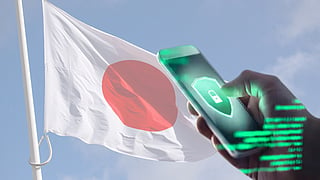
A Historical Record of Japan : Japan has achieved another historical record in the field of technology. Through the joint efforts of Japan's National Institute of Information and Communications Technology (NICT) and Sumitomo Electric Industries, a global record has been established for transferring internet data at an astonishing speed of 10.20 million gigabits per second (Gbps). This speed is so immense that the entire Netflix library or approximately 10,000 4K movies can be easily downloaded in one second. Additionally, a 150 GB game can be downloaded in just 3 milliseconds.
India's current average broadband internet speed is 63.55 Mbps, which is about 160 million times less than this new record of Japan. Compared to the average internet speed of the United States, this speed is 3.5 million times more.
Japan had previously set a world record in March 2024 by reaching 402 terabits per second, which is about 50,250 gigabits per second. That record was achieved using standard optical fiber cables. Now, the new record has reached speeds many times faster than that.
This record has been achieved using 19-core optical fiber technology. A regular fiber cable has only one core, through which data travels in a single lane. However, this new technology has 19 independent cores in one cable, meaning it functions like a 19-lane highway, where each lane carries independent data. The diameter of these fiber cables is only 0.125 mm, which is the same as regular fiber, but the efficiency is many times greater.
Researchers have used special types of amplifiers to maintain such speed over long distances. When data travels long distances through fiber cables, the strength of the signal in the form of light decreases. Amplifiers strengthen the signal again and transmit it up to about 1,808 kilometers.
Currently, this speed is limited to the laboratory. It may take a few more years to reach the average user. There are three main challenges for this:
1. High cost: A huge expense is required for such high-speed networks.
2. Hardware limitations: Current routers, servers, and network equipment are not capable of handling data at such speeds.
3. Need for infrastructure: Significant improvements will have to be made to the existing fiber network.
In the future, this speed will be extremely useful in areas such as cloud gaming, 8K video streaming, virtual and augmented reality, smart cities, and industrial automation. However, ordinary consumers will have to wait a little longer to experience this speed. Japan has once again taken the global lead in the field of internet speed. This is an inspiring matter for countries like India, as India's current internet speed is still far behind global standards. It is expected that India can achieve such progress in the future through Digital India, 5G networks, and the expansion of rural internet facilities.